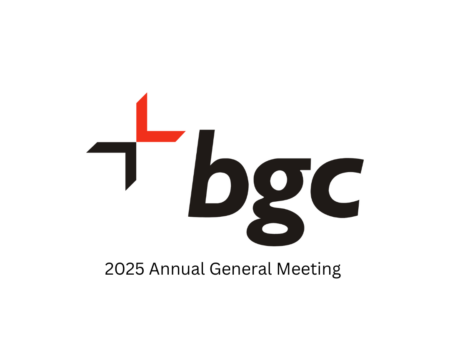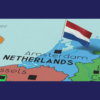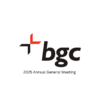Two major trade associations in the Netherlands, VNLOK and NOGA, have voiced growing concerns about the increasing amount of money spent on illegal gambling in the country. These concerns come as a result of the latest report published by the Dutch Gambling Authority (KSA), which provides a comprehensive look at the state of the licensed online gambling market for the first half of 2024.

Concerns Raised Over Illegal Gambling Spending in the Netherlands: A Closer Look at the KSA’s 2024 Report
While the number of players opting for legal gambling providers has increased, there remains a worrying trend: more money is being funneled into illegal gambling activities. This paradox highlights potential flaws in the regulatory system and raises significant questions about the effectiveness of current measures in protecting vulnerable groups.
The State of the Dutch Gambling Market in 2024: Key Findings from the KSA Report
The KSA’s half-yearly report sheds light on several key statistics regarding online gambling in the Netherlands. The most notable finding is that 95% of players in the first half of 2024 gambled with licensed providers. This marks an improvement from the 90% recorded in 2023, demonstrating that more Dutch players are choosing legal avenues for their online gaming experiences.
However, despite this shift, the proportion of the gross gaming result going to illegal operators has risen slightly from 12% in 2023 to 13% in 2024. This increase, though small, has raised concerns within the industry, particularly among the Licensed Dutch Online Gambling Providers (VNLOK) and the Dutch Online Gambling Association (NOGA).
Why Is Spending on Illegal Gambling Increasing Despite Fewer Players?
The increase in illegal gambling revenue seems to contradict the decrease in the number of players using illegal sites. So why is this happening? One possible explanation is that the remaining illegal gamblers are spending significantly more money than they did in the past. These individuals may be more likely to engage in high-stakes gambling, leading to a disproportionate increase in illegal gambling revenue.
Another factor contributing to this trend could be the ease of access to illegal gambling platforms, particularly for certain vulnerable groups such as minors, young adults, and problem gamblers. Recent research has shown that minors are often able to access illegal sites with little difficulty, which raises serious concerns about the effectiveness of regulatory measures aimed at protecting these at-risk groups.
VNLOK and NOGA: Addressing the Risks of Illegal Gambling
VNLOK Chair Helma Lodders and NOGA Acting Director Eric Konings have both expressed their concerns regarding the growing spending on illegal gambling sites. In a joint statement, they praised the increase in legal gambling participation but stressed the importance of addressing the risks posed by illegal operators.
They highlighted the particular vulnerability of certain groups, including minors, young adults, and those at risk of developing gambling problems. These groups are not only more likely to be drawn to illegal gambling sites but also less likely to be adequately protected by the existing regulatory framework.
The key issue here is the lack of enforcement and effective monitoring of illegal gambling activities. While the majority of Dutch players are now gambling legally, the appeal of illegal gambling remains strong, especially among the most vulnerable. As Lodders and Konings pointed out, minors in particular can easily access illegal platforms, raising questions about the overall effectiveness of current regulatory measures.
Are Vulnerable Players Being Adequately Protected?
One of the core responsibilities of the Dutch Gambling Authority is to protect vulnerable individuals from the dangers of gambling. Yet, the data suggests that these efforts may not be as effective as they need to be. In particular, minors and young adults are able to participate in illegal gambling with little difficulty, exposing them to the risks of addiction and financial exploitation.
In addition to minors, problem gamblers—those with a history of gambling addiction—are also at heightened risk of turning to illegal sites. These players may find that licensed providers enforce stricter regulations and limits on their gambling behavior, pushing them towards unregulated platforms where such restrictions are not in place. As a result, they may be spending more money on illegal gambling, contributing to the increase in illegal gambling revenue.
The Way Forward: A Balanced Approach to Legal and Illegal Gambling
As the Dutch online gambling market continues to grow, it is crucial to strike a balance between encouraging legal gambling and cracking down on illegal operators. While the increase in legal gambling participation is certainly a positive development, the rising revenue from illegal gambling sites is a red flag that cannot be ignored.
Both VNLOK and NOGA have made it clear that more needs to be done to protect the most vulnerable players, particularly minors, young adults, and problem gamblers. These groups are at the highest risk of falling prey to illegal operators, and if the issue is not addressed, they could slip through the cracks of the current regulatory framework.
Conclusion: The Netherlands
While the Netherlands has made significant strides in promoting legal gambling, there remains a pressing need to address the ongoing issue of illegal gambling. By strengthening regulatory enforcement, increasing public awareness, and improving player protection, the Dutch gambling industry can continue to grow while ensuring that all players are protected from the risks associated with illegal gambling.
FAQs About Concerns Over Illegal Gambling Spending in the Netherlands
1. What is the main concern regarding illegal gambling in the Netherlands in 2024?
The main concern is that although more players are choosing legal gambling providers, the amount of money spent on illegal gambling is increasing. This is despite a decrease in the number of players gambling on illegal sites.
2. What did the Dutch Gambling Authority’s (KSA) report reveal about online gambling in 2024?
The KSA’s report revealed that 95% of players in the first half of 2024 used licensed gambling providers, compared to 90% in 2023. However, the gross gaming revenue going to illegal gambling operators increased from 12% in 2023 to 13% in 2024.
3. Who raised concerns about the growing spending on illegal gambling?
Two major trade associations, the Licensed Dutch Online Gambling Providers (VNLOK) and the Dutch Online Gambling Association (NOGA), raised concerns about the increasing money spent on illegal gambling sites despite fewer players participating in illegal gambling.
4. Why are vulnerable groups particularly at risk from illegal gambling?
Vulnerable groups such as minors, young adults, and problem gamblers are at higher risk because they can easily access illegal gambling platforms, which often lack safeguards to protect these players. Research shows minors can gamble on illegal sites without difficulty, which raises concerns about the effectiveness of regulatory protections.
5. What is the appeal of illegal gambling sites?
Illegal gambling sites often attract vulnerable groups because they lack the restrictions and player protection measures found on legal platforms. This makes them appealing to those who want to gamble without limits, but it also exposes them to greater risks.
6. What is the current status of legal online gambling in the Netherlands?
As of the first half of 2024, 95% of Dutch online gamblers are using licensed providers. This is an improvement over the 90% reported in 2023, indicating a positive trend towards legal gambling participation.
7. How does illegal gambling impact problem gamblers?
Problem gamblers often turn to illegal gambling sites where there are fewer restrictions on spending and gambling behaviors. As a result, they may spend more money on illegal platforms, contributing to the rise in illegal gambling revenue.
8. What is the role of VNLOK and NOGA in addressing illegal gambling?
VNLOK and NOGA are working to raise awareness about the dangers of illegal gambling and are advocating for stronger regulatory measures. They emphasize the need to protect vulnerable groups and reduce the attractiveness of illegal sites.

















